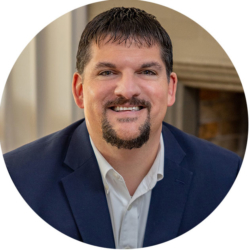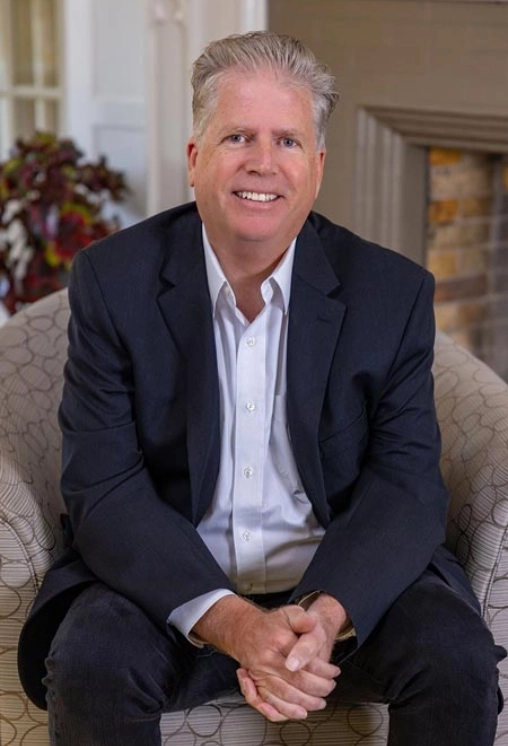Financial Stress Reduction a Point of Pride

Real Money: Straight-up Answers with Berkshire Money Management
DALTON — Not that Lauren Russo has a wand or anything, but when she’s with you at the table, you might find her dispelling financial confusion like she’s some kind of wizard.
Russo, 23, of Lee, is one of the younger members of the Berkshire Money Management advising team, and she’s also the firm’s only woman adviser.
How she got there isn’t magic: just years of hard work and planning. In fact, the Taconic alum accrued enough college credit in high school that she was able to graduate a semester early from the University of Massachusetts-Amherst, with a major in resource economics and a minor in psychology.
“I was able to expedite things, and saved tuition for a semester,” says Russo matter-of-factly, as if every 18-year-old makes those kinds of future plans.
It’s that kind of forward thinking that spurred firm founder Allen Harris, her cousin, to bring her on board during her junior year at UMass to get her started in the business, and helped mold her into the financially savvy adviser that she is today.
A Berkshire native who grew up in Pittsfield, just like her parents and grandparents, Russo can most often be found on the streets of Lee and the trails of the Berkshires, trying to expend some of the energy of her rescue pup, Penelope.
The family-focused aunt of four recently chatted with The Eagle on what got her into the personal and commercial finance business, in this latest installment of Real Money: Straight-up Answers with Berkshire Money Management, a Q& A series sponsored by the firm.
Q What brought you to the business of financial planning?
A When I went to college, I was undeclared. At the time, I was actually interested in doing something in the medical field, particularly neurosurgery or something involving the brain … I’m very interested in how the brain works. I really wanted to help people, and in my mind, helping them physically with their ailments was the way to go.
But eventually, I realized that that’s not where my skill set is. I’ve always been a big math person, and I like working with people one on one and helping them with their problems.
I was taking economics courses, so I reached out to my cousin Allen to learn a little more about Berkshire Money Management and what he does and what it’s like being a financial adviser. That ended up turning into an internship and from there became a job. I’ve been here since my junior year in college. I didn’t turn out to be a doctor, but I do get to help people with their needs, but in a different fashion. I feel this is where I was meant to be.
Q What money lesson should be taught in school but isn’t?
A I really just believe that all students should be taught some kind of basic financial literacy. There are so many people who come in as clients or prospective clients who don’t understand how their money is being invested or what their retirement company is doing with their money, or even where it is. I think a lot of the basics have to be taught in school: how to create a budget; how to save money; the basics of investing; what a stock is, what a bond is. That basic level of financial literacy is so important. The Black Lives Matter movement has brought up a different aspect of the financial industry, which is that it’s not very diverse. Even me, as a female adviser, am in the minority.
By teaching kids that there are opportunities in the financial field, and that there are cool things to learn, and knowing that you can help people this way, is a really good way to bring more diversity into the industry.
Q How has the pandemic changed your overall outlook on the market?
A Living through this has been a lot more of an educational experience for me. The main thing is that nobody can predict the future, and nothing is guaranteed. We just have to do our best to keep our clients’ money safe, keep our clients sane and keep on pushing through.
Q Is there a lot more client liaising lately, where you’re having to talk people through this turbulent time?
A Definitely, and this is where my psychology minor comes into play. A whole new field of behavioral economics and financial therapy is emerging. Our brains aren’t made to weather these types of storms. If you see fluctuations in your portfolio, that’s scary, especially if that’s your life savings, and you’re planning on retiring and using that money. There’s been a lot of constant contact with all of our clients, talking to them objectively, telling them what we know, what we’re doing with their money, and how we’re protecting them.
And also what steps we’ll take if X or Y happens. Knowing that they can reach out to us at any time is very comforting.
Q What about a period from the past that best illustrates the market of today?
A We haven’t really experienced anything quite like this, mostly because it came on so quickly and severely, although most people, when they look at what’s happening now with the markets and the economy, they look back to the Great Recession. There’s definitely some similarities, such as GDP decline, unemployment, corporate earnings. But because 2008-09 happened over a longer time period, and this has happened within a few months, there’s not really anything precise in our history that we can point to and exactly model what’s happening. We do expect the rest of the year to be a bit of a bumpy ride, but I don’t think the market is going to have the rug swept out from underneath it completely.
Q Is there money to be made now, during a worldwide crisis, and what does that look like?
A A lot of our work is protecting what our clients have, rather than chasing returns or trying to find the funds that are going to make you the most money. With these big swings, we don’t want to be buying and selling every single day, trying to capitalize on those big swings, because we just don’t know which way they’re going to tip. We’re constantly re-analyzing how our portfolios are invested. We have a lot of meetings with our investment committee here, aiming to think outside of the box. We also use different investment products designed to protect clients from big declines.
Top ones in terms of safety are Treasury bonds and TIPs — Treasury Inflation Protected securities— because they’re designed to be almost similar to a checking or savings account, but it will keep up with inflation. You’re not going to be making a million dollars, but it’s going to be better than just parking your money into savings or checking.
Q What does a relationship with Berkshire Money Management mean for clients, for today and tomorrow?
A My favorite moment with any client is when they come in all anxious about everything going on and not knowing what to do next.
And by the time we have a conversation, you can see the relief, the stress come off of their shoulders, just knowing that we’re going to take care of the problem that they’re having. That’s the big thing becoming a client with us really means.
You’re joining our family, you’re going to get to know all of us, and we’re going to take care of you.
I’m very patient, and I’m happy to explain every line of client statements. I’m passionate about people understanding what’s happening with their money. If I feel like they’re not getting the help that they need from another firm, I like to step in and provide that.
Have questions about what Berkshire Money Management can do for your financial future? Reach out to Lauren and her pup pal, Penelope, at berkshiremm.com, or call 413-997-2006 or 888-232-6072.
This article, written by Noah Hoffenberg, originally appeared in The Berkshire Eagle on July 12, 2020
Lauren is a CERTIFIED FINANCIAL PLANNER™ professional, Certified Exit Planning Advisor, and Certified Value Builder. In her role as Assistant Director of Financial Planning at Berkshire Money Management, she develops comprehensive financial plans for BMM clients and prepares business owners to strategically transfer or sell their companies.







